Society for Vascular Medicine Comprehensive Review of Vascular Ultrasound Interpretation and Registry Preparation 2023 (CME VIDEOS)
$895 Original price was: $895.$50Current price is: $50.
28 Videos + 2 PDFs ,
This online CME program spans 40 lectures that expose you to all aspects of non-invasive vascular testing. Abundant case study materials and over 100 registry-type exam questions will help those who work within the non-invasive vascular laboratory to prepare for the RPVI examination and maintain IAC Vascular Testing continuing medical education requirements. Nationally-renowned speakers provide expanded content on vascular lab operations and ergonomics, as well as valuable insight on:
- Imaging techniques (grayscale, color and spectral Doppler, physiological testing)
- Various testing protocols and diagnostic criteria
- A broad range of vascular pathology, both common and rare
- Fundamentals of vascular physics
- Quality improvement and patient safety
- And more…
Unique Learning Objectives
At the completion of this course, you should be able to:
- Recognize basic ultrasound physics concepts and their application to vascular ultrasound and physiologica testing
- Identify common imaging and Doppler artifacts encountered in the vascular laboratory
- Use grayscale imaging, color Doppler analysis, and spectral Doppler waveforms to assist in the diagnosis of arterial and venous disease
- Apply interpretation skills for diagnosis of internal carotid artery stenosis using duplex ultrasound
- Apply interpretation skills for diagnosis of venous thrombosis and venous valvular reflux using duplex ultrasound
- Use arterial duplex and physiological testing to assess severity and anatomic location of lower extremity arterial disease
- Apply standard diagnostic criteria to diagnose abdominal aortic aneurysm (AAA) and renal and mesenteric artery stenosis using duplex ultrasound
- Use color and spectral Doppler analysis to assess the patency of arterial and venous stents and following endovascular AAA repair
- Recognize uncommon and rare vascular disorders encountered in the vascular laboratory
- Use best practices for running a high quality vascular laboratory, including quality improvement program, accreditation, and prevention of work-related musculoskeletal disorder (WRMSD) among technical personnel
- Identify areas of knowledge deficit to improve preparation for the ARDMS Registered Physician in Vascular Interpretation (RPVI) examination
TOPICS / SPEAKERS
Basics of Laboratory Technology and Operations
Preparing for the Registry Examination – Heather L. Gornik, MD, RVT, RPVI, MSVM
Physics and Instrumentation I – Fredrick Kremkau, PhD
Physics and Instrumentation II – Fredrick Kremkau, PhD
Transducer Selection, Image Optimization, Spectral and Color Doppler, and B-Mode Artifacts – Ann Marie Kupinski, PhD, RVT, RDMS, FSVU
Quality Improvement in the Vascular Laboratory – Heather L. Gornik, MD, RVT, RPVI, MSVM
Fundamentals of Ergonomics in the Vascular Lab – Jill Sommerset, RVT
Cerebrovascular
Basics of the Carotid Duplex Examination and Criteria for Diagnosis of Internal Carotid Artery Stenosis – Heather L. Gornik, MD, RVT, RPVI, MSVM
Carotid Evaluation Following Stents and Endarterectomy, Interpretive Pitfalls – R. Eugene Zierler, MD, RPVI, FACS, FSVM
Non-atherosclerotic Cerebrovascular Disease – Duplex Findings – Daniella Kadian-Dodov, MD, RPVI, FSVM
Aortic Arch Vessel and Vertebral Artery Findings, Subclavian Steal – Daniella Kadian-Dodov, MD, RPVI, FSVM
Transcranial Doppler Essentials – Larry Raber, RVT, RDMS, RT
Interpretive Case Review – Carotid, Vertebral, and Subclavian Arteries – Rapid Fire Cases – Aditya Sharma, MBBS, RPVI, FSVM
Peripheral Arterial
Lower Extremity Arterial Physiological Testing – Ana Casanegra, MD, RPVI, FSVM
Lower Extremity Arterial Duplex – R. Eugene Zierler, MD, RPVI, FACS, FSVM
Upper Extremity Arterial Testing – Marie D. Gerhard Herman, MD, RVT, RPVI
Pedal Artery Duplex and CLTI Duplex Imaging – Jill Sommerset, RVT
Arterial Access Complications – Natalia Fendrikova-Mahlay, MD, RPVI
Dialysis Access Mapping and Post Procedure Evaluation – Ann Marie Kupinski, PhD, RVT, RDMS, FSVU
Interpretive Case Review – Physiologic Testing and Duplex of Native Upper and Lower Extremity Arteries – Rapid Fire Cases – Aditya Sharma, MBBS, RPVI, FSVM
Interpretive Case Review – Duplex Assessment of Arterial Bypass Grafts and Stents – Rapid Fire Cases – Ido Weinberg, RPVI, FSVM
Interpretive Case Review – Access Complications, Dialysis Access, Vascular Zebras – Rapid Fire Cases – Jeffrey Olin, DO, RPVI, MSVM
Abdominal
Renal (Native and Transplant) Duplex Ultrasound, Renal Stents – Natalie Evans, MD, RPVI, FSVM
Mesenteric Artery Duplex Ultrasound, Mesenteric Stents – Natalia Fendrikova-Mahlay, MD, RPVI
Assessment of the Aorta, Surveillance of AAA, and Follow-up of Aortic Endografts – R. Eugene Zierler, MD, RPVI, FACS, FSVM
Duplex Doppler Assessment of Hepatic-Portal Vasculature – Nirvikar (Nirvi) Dahiya, MD
Interpretive Case Review – Abdominal Imaging – Abdominal Aorta, AAA; and Endografts; Renal and Mesenteric Ultrasound – Rapid Fire Cases – Natalie Evans, MD, RPVI, FSVM
Interpretive Case Review – Abdominal Imaging – Aortic, Mesenteric, Renal and Pelvic Arterial and Venous Compression Syndromes, Arteriopathies – Rapid Fire Cases – Jeffrey Olin, DO, RPVI, MSVM
Peripheral Venous
Venous Duplex for Diagnosis of Deep Venous Thrombosis – Marie D. Gerhard Herman, MD, RVT, RPVI
Bare Bones for the Boards – Venous Physiological Testing – Ana Casanegra, MD, RPVI, FSVM
Venous Duplex for Assessment of Venous Valvular Incompetency, Mapping for Endovenous Therapies, Assessing for EHIT – Raghu Kolluri, MD, RVT, FSVM
Venous Duplex for Assessment of Central Veins – Karem Harth, MD
Interpretive Case Review – Venous Testing 1 – Rapid Fire Cases – Karem Harth, MD
Interpretive Case Review – Venous Testing 2 – Rapid Fire Cases – Raghu Kolluri, MD, RVT, FSVM
Mock RPVI Examinations and Additional Talks
Key Non-Vascular Incidental Findings Every Reader Should Know – Nirvikar (Nirvi) Dahiya, MD
Physics, Technology, and Instrumentation Mock RPVI Examination – Ann Marie Kupinski, PhD, RVT, RDMS, FSVU
Mock Examination Questions – Session I – Randy Ramcharitar, MD
Mock Examination Questions – Session II – Ido Weinberg, RPVI, FSVM
Mock Examination Questions – Session III – Aditya Sharma, MBBS, RPVI, FSVM
Mock RPVI Examination Questions – TCD and TCI – Larry Raber, RVT, RDMS, RT
Mock Examination Questions – Essentials of Accreditation, Patient Care and Safety, Quality Assurance, and Test Validation – Heather L. Gornik, MD, RVT, RPVI, MSVM
Only logged in customers who have purchased this product may leave a review.
Related products
Cardiology
Braunwald’s Heart Disease Review and Assessment, 9th Edition (Original PDF from Publisher)
RETAIL PDF, ToC, Index, Full Bookmark , File Size = 42.00 MB
PDF , File Size = 60.00 MB
PDF , File Size = 7.30 MB
PDF , File Size = 89.60 MB
PDF ,
PDF , File Size = 25.00 MB
PDF ,
PDF , File Size = 54.00 MB

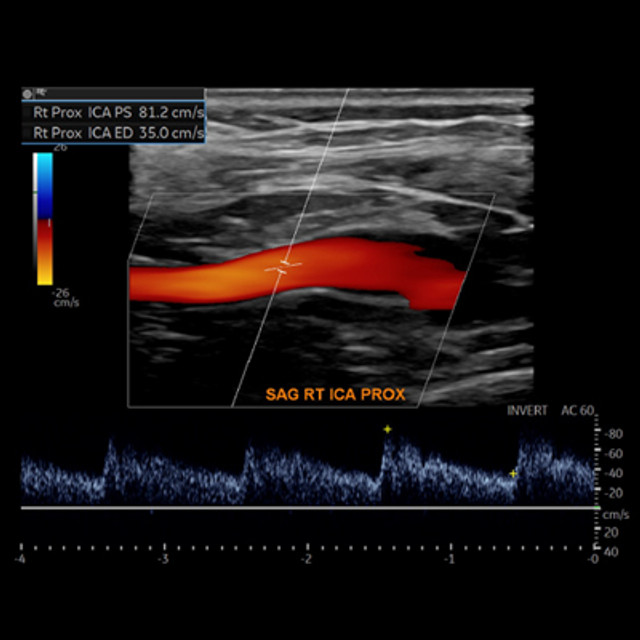

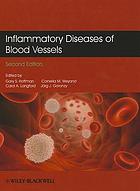

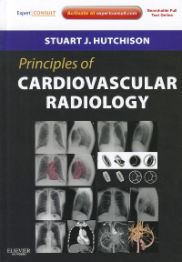
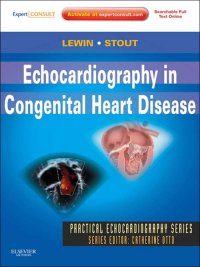
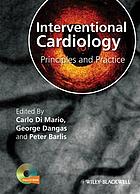
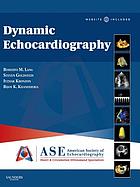
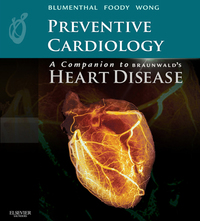
Reviews
There are no reviews yet.